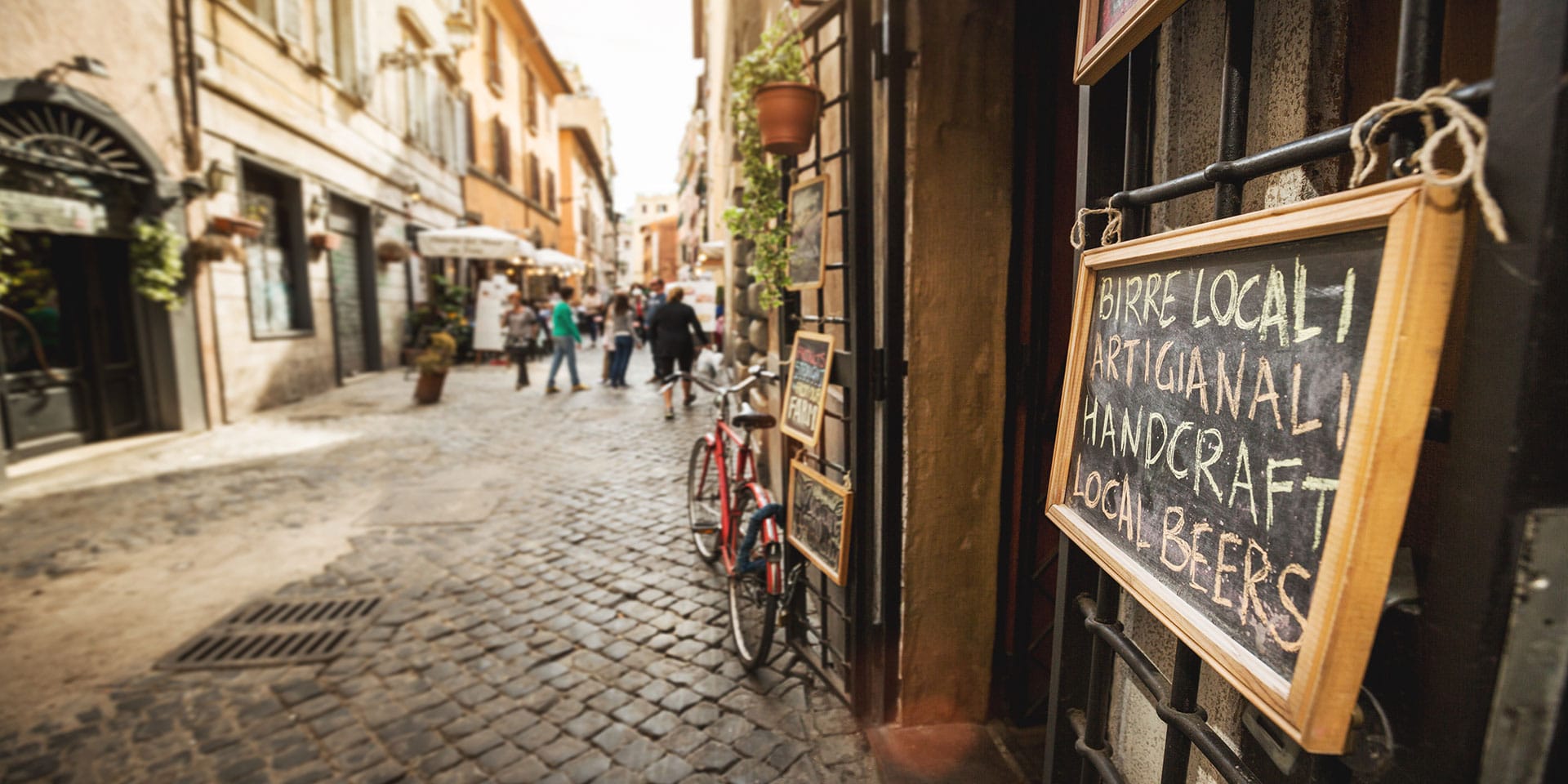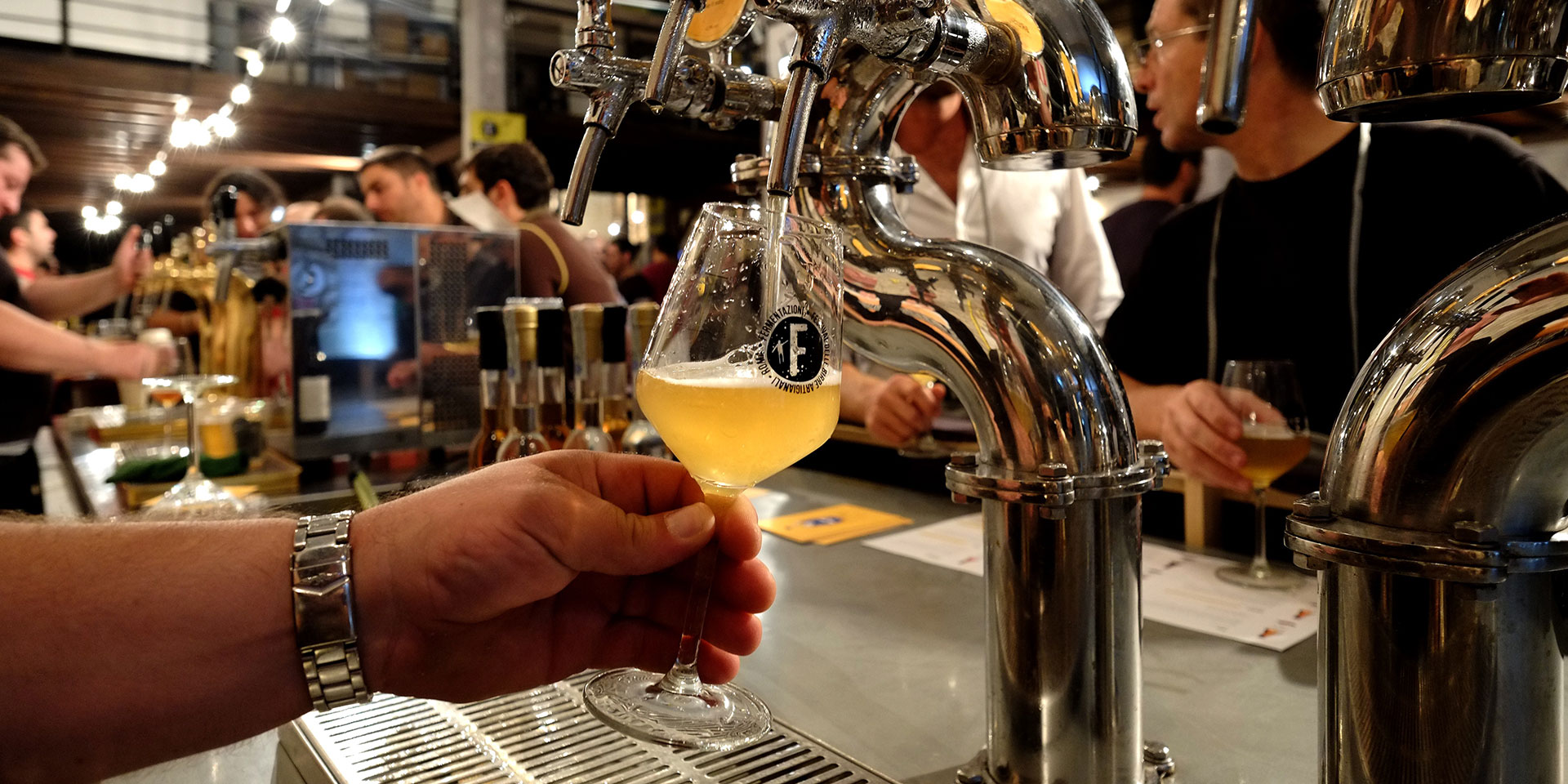When Rome native Manuele Colonna first tasted the classic German strong beer, Andechs Doppelbock, in the late 1990s, it wasn’t just an awakening for him. It was a turning point for his birthplace, the Eternal City.
For Colonna, already a beer-lover, that sip revealed the possibilities of this drink; for Rome, where he chose to open the seminal beer bar Ma Che Siete Venuti A Fa in 2001, it sounded the starting gun on a remarkable beer revolution.
Rome is now the undisputed beer capital of southern Europe (with a nod to Barcelona, which is catching up fast). Over the past two decades, the Italian capital has added birra artigianale (craft beer) alongside other local staples, like cacio e pepe pasta and frascati wine in its food-and-drink crown.
Rome’s beer journey has picked up pace of late, with a number of significant openings in the city. Here’s five key places to savor Roman beer culture and get a taste for how things have evolved.
Ma Che Siete Venuti A Fa
Manuele Colonna has an Italian father and a German mother, so it’s no surprise that his passion for beer is German-focused. There’s one part of Germany he particularly loves, though: Franconia, where farmhouse breweries and old-fashioned styles are still the norm.
At Ma Che Siete Venuti A Fa, a tiny, hole-in-the-wall bar in Via Benedetta, you’ll generally find beers from one of Franconia’s finest breweries, Gänstaller Bräu, on tap, alongside other brews from Italy and Germany.
And the bar’s name? It’s a football insult, roughly translated as “What are you doing here?” Drinking great beer, presumably.

BE.RE
If Colonna’s first venture is down to earth, his most recent is out of this world. BE.RE, which is found a stone’s throw from The Vatican, boasts 25 different beers, a copper bar and stoneware mugs.
This place is a shrine to Europe’s three priceless beer cultures: English cask ale (there are six handpumps), Belgian Lambic ale (look into the bottle selection for these) and the rustic lagers of Franconia, Colonna’s own speciality. The food is great too, serving grub from Trapizzino, which dishes up a pizza sandwich that has taken Rome by storm over the past few years.
Open Baladin Roma
Baladin is generally regarded as the first Italian craft brewery, having opened in 1996 in northern Italy. Founder Teo Musso, a man as exuberant as his wild mop of grey-black hair, subsequently launched a beer, Open, and published the recipe to generate interest in the idea of Italian craft beer.
The concept continues with the Roman outpost, Open Baladin, which opened in 2009, and is devoted to Italian beer. The bank of bottles behind the bar contains some of the country’s finest products, but it’s the 40 draught Italian beers that generate most interest.
L’Osteria di Birra del Borgo
Few Italian breweries have built as big a reputation as Birra Del Borgo, based 43 miles north of Rome, so the disappointment at its sale to international monolith, Anheuser-Busch InBev was understandable.
Nonetheless, founder Leonardo Di Vincenzo remains one of Italian beer’s brightest lights, and his new venture, L’Osteria — with its distinctive fishing-net ceiling decoration and brewery — brings something new to the Italian capital. The quality of the food is a step up on what’s already available; Chef Gabriele Bonci, Rome’s so-called “Michelangelo of Pizza”, has designed the menu, and there are beer cocktails too.
The beer will be brewed to compliment the food – and to try new things that aren’t possible on the much bigger kit at Birra del Borgo’s main brewery, too.
Spin Beer Shop
If things have got a little more polished in the Roman beer scene of late, then Spin is a useful reminder of the drink’s humble purpose, with a twist. Food and beer is a well-worn path in Rome, but beer and music was less common, until now.
This tiny-but-smartly decorated nook, in Piazza Augusto Albini to the south of the city center, offer a well-chosen bottled beer selection plus vinyl too, to listen to or buy.
The shop hosts regular live DJ sets, while the beer selection features not only Italian breweries but also much-respected foreign brewers such as Siren (UK), Alvinne (Belgium) and Yeastie Boys (New Zealand). Decoration, meanwhile, runs to asymmetric, black and white wallpaper, beer bottles on plain wooden shelves and framed vinyl.




